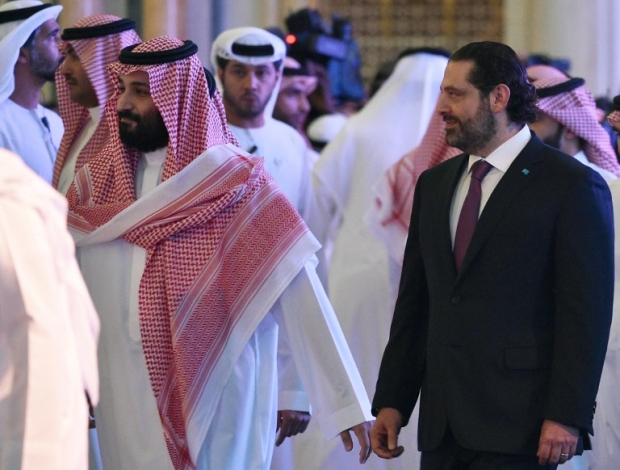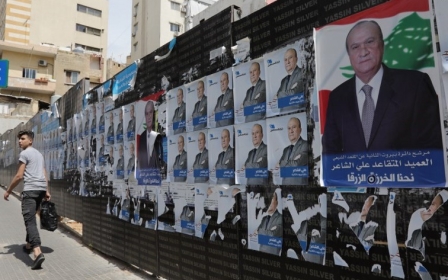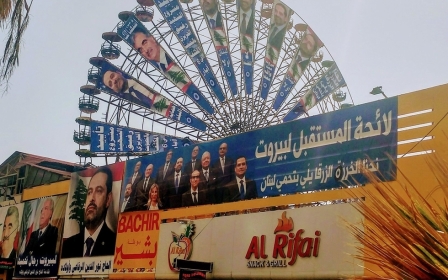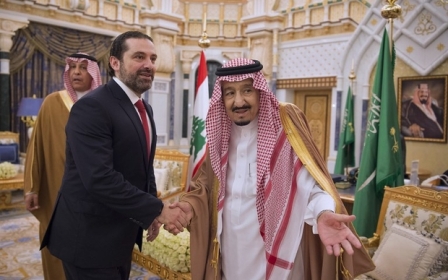Why Lebanon's process of cabinet formation will continue to stall
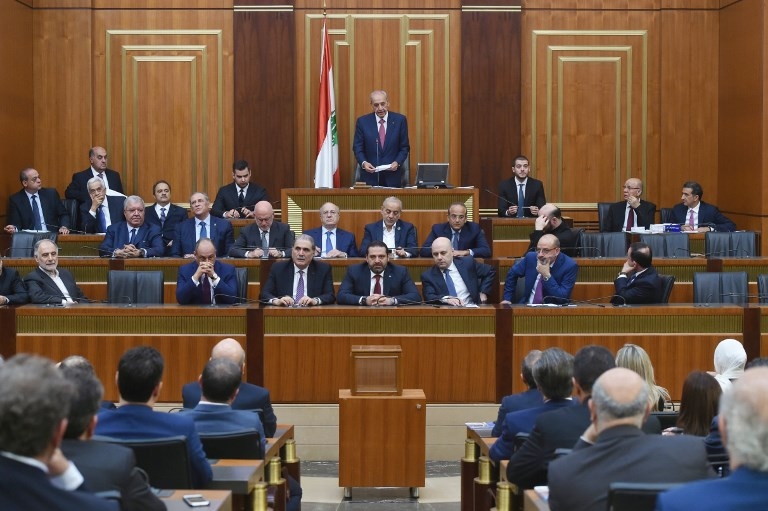
It has been six months since parliamentary elections took place in Lebanon, and the country is still without a cabinet.
Delays in government formation in Lebanon are not new; the country has witnessed several previous cycles during which parties and leaders argued over sharing the political pie. The current delay however comes at a critical time in the Middle East.
With Lebanon’s domestic politics being both directly and indirectly influenced by regional politics - especially pertaining to Saudi Arabia, Iran and Israel - the increasingly complicated regional context means that a breakthrough in talks on forming a Lebanese government is not likely in the near future.
The biggest loser
Lebanon’s parliamentary elections in May saw the coalition formed by Hezbollah and the Free Patriotic Movement win more parliamentary seats than its rival coalition, formed by the Future Movement and the Lebanese Forces - although the latter almost doubled its seats. The Future Movement, led by Prime Minister Saad Hariri, was the biggest loser.
The results paved the way for Hezbollah and the Free Patriotic Movement to ask for a bigger representation in cabinet. The Lebanese Forces also used their own improved results to argue for the same. The stand-off is one factor that has stalled the process of government formation.
With Lebanon’s domestic politics being influenced by regional politics, the increasingly complicated regional context means that a breakthrough in talks on forming a Lebanese government is not likely in the near future
After months of arguments, the Lebanese Forces recently conceded to a compromise over Christian representation in the government, but a new hurdle has emerged, with Hezbollah insisting on naming a Sunni minister in the new cabinet. Since 2005, the Future Movement has selected Sunni cabinet members on the basis of being the biggest political party with a Sunni following in Lebanon.
The request by Hezbollah attempts to take advantage of the Future Movement’s electoral losses by arguing that it can no longer monopolise Sunni representation.
Hezbollah is trying to push for one of its four Sunni allies to be given a ministerial seat. The reality is that all four MPs have close ties to the Syrian regime of Bashar al-Assad.
Regional dynamics
With no side so far conceding, Hariri left Lebanon for Paris last week and has not announced a date for his return to recommence cabinet formation talks.
Zooming out for the bigger picture shows how Lebanon’s domestic political landscape remains dictated by regional dynamics.
The process of cabinet formation comes as Hariri is under intense pressure from Saudi Arabia not to concede to the demands of Hezbollah. After the incident last November, during which Hariri was reportedly forced by Saudi authorities to announce his resignation as prime minister from Riyadh on the basis of being threatened by Hezbollah and Iran, his political future lies squarely in the hands of Saudi Arabia.
While he was feeling more emboldened over the summer - thanks to French President Emmanuel Macron’s intervention to smooth things over with Saudi Arabia - Hariri today finds himself clinging to an external patron that is facing intense global scrutiny over the murder of Jamal Khashoggi. International pressure on Saudi Arabia has thus reduced Hariri’s bargaining power in Lebanon.
On Monday, the US reinstated sanctions on Hezbollah’s main sponsor, Iran. Despite the bravado shown by Iran and Hezbollah, the sanctions will severely impact the Iranian economy, negatively affecting Tehran’s ability to support Hezbollah financially and logistically in the medium to long term. And it comes on top of existing strain on Iran and Hezbollah over their intervention in Syria.
Access to state resources
Hezbollah’s insistence on more representation in the Lebanese cabinet is therefore not just political; it is also economic. More cabinet representation for any political party in Lebanon means more access to state resources. Hezbollah, like all other Lebanese political forces, needs resources that it can channel towards its own projects.
The reduced financial and human resources of Hezbollah and Iran are somewhat counterbalanced by an increase in Hezbollah’s military capacity.
While the Lebanese President Michele Aoun’s reaction has been to present himself as seeking fair play between Hezbollah and Hariri, declaring that Hezbollah’s Sunni “independents” do not form a parliamentary bloc and therefore do not have a valid reason for being represented in the cabinet.
Hariri’s departure for Paris allows him to buy time until the dynamics involving Saudi Arabia, Iran and Israel evolve, one way or another. For Hariri, forming a cabinet right now - regardless of its configuration - is likely to mean betting on the wrong horse.
- Lina Khatib is the head of the Middle East and North Africa Programme at Chatham House. You can follow her on Twitter @LinaKhatibUK.
The views expressed in this article belong to the author and do not necessarily reflect the editorial policy of Middle East Eye
Photo: The Lebanese parliament convenes in Beirut on 23 May, 2018 (Lebanese Parliament Press Office/HO/AFP)
Middle East Eye propose une couverture et une analyse indépendantes et incomparables du Moyen-Orient, de l’Afrique du Nord et d’autres régions du monde. Pour en savoir plus sur la reprise de ce contenu et les frais qui s’appliquent, veuillez remplir ce formulaire [en anglais]. Pour en savoir plus sur MEE, cliquez ici [en anglais].



